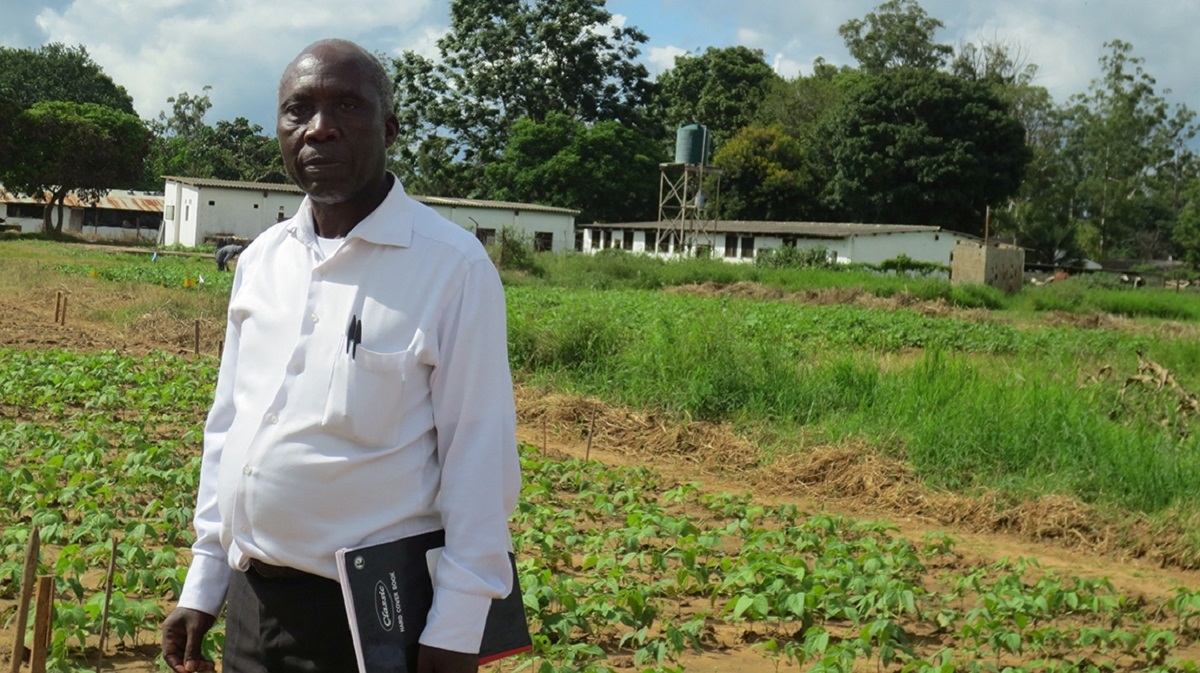
Zambia to Release 2 Drought Tolerant Cowpea Varieties
June 3, 2020| |
Zambia will soon welcome two new varieties of drought tolerant cowpeas that can produce up to 10 percent more yield than their parent varieties despite the heat, drought, pests, and diseases that are prevalent in the country. The two new crops can potentially increase food security and lead to higher farmers' income.
The development of Lunkhwakwa and Lukusuzi cowpea varieties is a collaborative project led by the Food and Agricultural Organization of the United Nations (FAO), International Atomic Energy Agency (IAEA), and the University of Zambia. Seeds of local Zambian cowpeas were exposed to gamma irradiation in the FAO/IAEA laboratory in Austria, then were brought back to Zambia. These were subjected to field tests and were observed to mature earlier and require less water. Comparing them with conventional cowpeas, the two new varieties were able to withstand drought better while producing higher yield, and perform better against certain pests and diseases. The selection of varieties was conducted with farmers alongside the scientists who helped develop them. Seed production is ongoing and the seeds will be ready for distribution in November 2020.
The project initially aimed to help farmers living in the dry areas of Zambia who cannot produce enough food due to the increased drought brought by the effects of climate change. But since the new varieties were also found to be tolerant to diseases, the developers also plan to grow them in high rainfall areas where yield loss due to cowpea diseases is the main problem.
Read the news release from IAEA to find out more.
| |
You might also like:
- Zambia Lifts Ban on GM Importation, Says GM Crops are Safe
- GM Crop Adoption Continues to Move Forward in Africa
- Nigeria Commercializes Pod Borer Resistant Cowpea, its First GM Food Crop
Biotech Updates is a weekly newsletter of ISAAA, a not-for-profit organization. It is distributed for free to over 22,000 subscribers worldwide to inform them about the key developments in biosciences, especially in biotechnology. Your support will help us in our mission to feed the world with knowledge. You can help by donating as little as $10.
-
See more articles:
-
News from Around the World
- Zambia to Release 2 Drought Tolerant Cowpea Varieties
- Genome Editing and Its Applications in Health and Agriculture
- Chile Serves as a Key Enabler for Global Plant Breeding Innovations
- Omega-3 Canola Oil to Help Reduce Overfishing
- Bt Brinjal Farmers Earned 21.7% More, Satisfied with Yield and Crop Quality
-
Research Highlights
- Plant Science Discovery Uncovers Ways to Improve Immune Responses
- Iranian GM Rice Found to Contribute to Environmental Health
-
Plant
- GA20ox-2 Targeted Mutation Produces Semi-dwarf Rice
-
Health
- Scientists Find Potential Targets for COVID-19 Vaccine
- First Results from Human COVID-19 Immunology Study Identify Universally Effective Antibodies
-
Read the latest: - Biotech Updates (January 21, 2026)
- Gene Editing Supplement (December 17, 2025)
- Gene Drive Supplement (February 22, 2023)
-
Subscribe to BU: - Share
- Tweet

